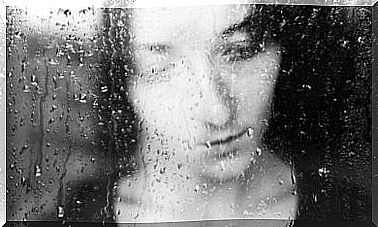The Desire To Appear On Social Media

There is currently a great desire to appear on social media, but are we as happy as we show on our profiles? This question arises from the concept of “happiness”, perhaps fictitious, continuously shown on the networks.
If we browse any social network, we’ll find posts from acquaintances traveling the world full of smiles, or maybe a photo of that friend – whom we haven’t talked to in weeks – with his girlfriend, extremely happy and in love as if they’ve walked out of a movie.
According to the Annual Social Media Study prepared by the IAB of Spain, we spend approximately 37 hours connected per week, about 22% of our time.
For this reason, according to the IAB study, our social life is closely linked to Internet social platforms. So it’s not surprising that we use this tool to send messages to people around us.
In short, we are interconnected to the Internet and social networks, and they are part of our daily lives. Therefore, it is important to ask ourselves: what part of reality do we show on social media?

The need for approval on social media
According to several surveys, there is a genuine need to please others, represented by a need for social approval and to appear on social media.
This is what a study by the University of Mexico called Social Convenience Reassessed: more than a distortion, a need for social approval.
Therefore, the desire to appear on social media seems to be fostered by an inherent need for social approval, to be accepted and reinforced by others.
For example, we get a sense of well-being when we post a “selfie” and receive a lot of flattering likes and comments. After all, who doesn’t like compliments?
That’s where the attitude of adopting certain customs or activities arises in order to want to appear or make a good impression on others, especially on social networks.
Psychologist José Elías, president of the Spanish Association of Hypnosis, talks about “the adoption of certain habits, gestures and attitudes that seek to project a good image (an image that receives positive recognition), to demonstrate to others that we are happy, even though it is not. always be true or we are not convinced of it”.
In other words, according to the author, we satisfy our need for social approval by showing an image of ourselves that may not be reality.
The “contagious happiness” effect
According to a study by the University of California, people’s mood is modified and conditioned by the posts they see on social media. The same study guarantees that “the published content seeks to convey an image of ‘contagious happiness’”.
According to the study, perceiving the joy and well-being of others leads us to want to reach that state, and therefore encourages us to publish similar content, producing the effect of “contagious happiness”.

Is what we publish part of reality?
Yolanda Pérez, PhD in Psychology, says that “It has everything. People who show the truth, something more unreal and even people who show the truth halfway; the latter are the most common”.
In addition, the author adds: “We show how beautiful we are, how friendly and smiling we are in an instant, but these photos that are real don’t show our reality, just part of it, because the day has 24 hours and it’s impossible to smile for so long time”.
In short, it is clear that not everything we see on networks is a reflection of reality. Appearance on social media, as we explained, is relative.
Therefore, we must not make the mistake of thinking that there are people who live 24 hours a day in a state of maximum well-being: we all have moments of crisis, sadness and anguish.
Having bad days is part of life and makes us appreciate the good times even more. In short, no one has an absolutely perfect life.








